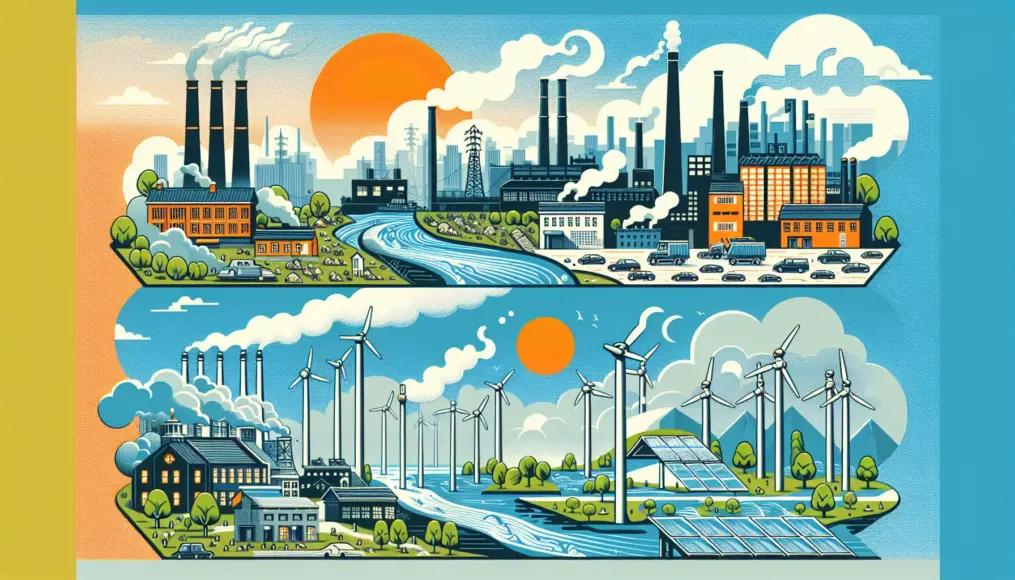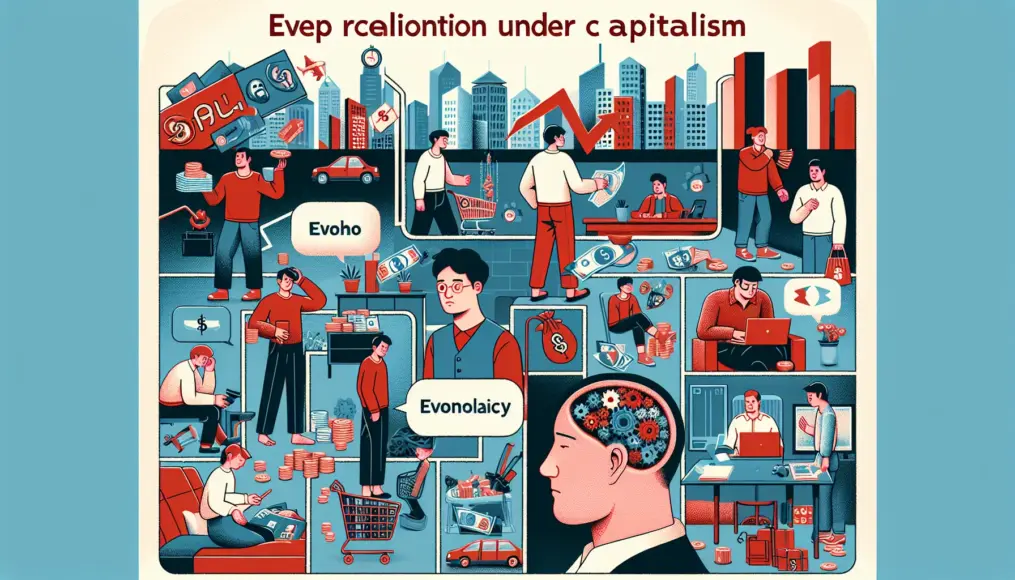Japan’s pollution issues have significantly impacted our society. With the rapid economic growth following World War II, the strain on the environment increased, leading to various pollution incidents. These problems extend beyond environmental concerns; they have also profoundly affected social structures and the economy. By reflecting on the history of pollution issues we face, we can better understand what solutions will be necessary for the future.
In this article, we will delve into the historical background of Japan’s pollution problems, highlight key incidents, and explore the policies and technological responses that have emerged. Additionally, we will consider future pollution countermeasures as we strive for a sustainable society. By focusing on this critical theme, we aim to uncover insights that can help us create a better future.
- An overview of Japan’s pollution issues and their impact
- A summary of the “Four Major Pollution Diseases” and their social and economic effects
- Insights into sustainable solutions for the future
The Historical Background of Pollution Issues in Japan
Japan’s pollution problems became particularly pronounced during the post-war period of rapid economic growth. As industries flourished, the environmental burden increased, leading to a series of pollution incidents that had serious repercussions not just for the environment, but also for our health and daily lives. Understanding the history of pollution issues can help us address contemporary environmental challenges and seek solutions for the future.
In this section, we will delve into specific examples of pollution incidents in post-war Japan, as well as the initial measures taken to tackle these issues. By exploring how these problems were recognized and addressed, we can uncover valuable lessons for today.
Pollution Incidents After World War II
In post-war Japan, the country experienced swift economic growth alongside a surge in pollution incidents. The rapid industrialization led to harmful discharges from factories, adversely affecting the surrounding environment. Notably, the so-called “four major pollution diseases” emerged as significant problems, causing suffering for countless individuals. These events served as a wake-up call for society, highlighting the critical importance of pollution issues.
At the time, both the government and corporations lacked sufficient consideration for environmental impacts, resulting in serious threats to the health of residents and workers. In response, local communities and civic organizations began to mobilize, spreading awareness and advocating for change. This backdrop fostered a growing awareness of environmental issues, prompting the search for initial solutions.
- Specific examples of pollution incidents in post-war Japan
- The impact of the four major pollution diseases
- The rise of environmental awareness and the importance of civic movements
Early Measures Against Pollution
As pollution problems escalated, the government was compelled to take action. In 1967, the Basic Pollution Control Law was enacted, providing a fundamental framework for preventing pollution. This law established environmental standards for businesses and outlined penalties for violations, forcing companies to enhance their environmental considerations.
Moreover, as local residents began to raise their voices against pollution issues, this grassroots activism became a crucial factor in prompting policy changes. Pollution concerns increasingly became a societal issue, leading to innovations in environmental protection technologies. These early measures laid an important foundation for future pollution prevention efforts.
For those interested in the topic, we recommend this article for a deeper understanding of the historical context: “What Impact Did Post-War Education Reform Have on Society?” By exploring how education reform influenced pollution issues and transformed societal awareness, you can gain a more comprehensive insight into this critical aspect of Japan’s history.
- The establishment of the Basic Pollution Control Law and its significance
- Policy changes prompted by grassroots movements
- Advancements in technology for environmental protection
Major Pollution Incidents and Their Impact
In Japan, pollution issues have garnered significant attention, particularly due to the four major pollution-related diseases. These diseases were caused by environmental contamination resulting from industrialization and urbanization, leading to widespread suffering among the population. The repercussions of these pollution incidents extended beyond health concerns, having serious implications for society as a whole. In this section, we will explore an overview of the four major pollution diseases and examine the social and economic impacts of these events.
The backdrop of these pollution incidents highlights a troubling lack of environmental consideration in corporate economic activities. This neglect jeopardized the health of local residents and brought social issues to the forefront. Understanding these problems is crucial for shaping future pollution countermeasures and environmental protection efforts.
Overview of the Four Major Pollution Diseases
The four major pollution diseases are primarily known to stem from water and air pollution. Specifically, they include Itai-itai disease, Yokkaichi asthma, Minamata disease from Tokyo Bay, and Minamata disease itself. These illnesses emerged in specific regions, causing severe health impacts for numerous individuals.
Itai-itai disease is caused by water contaminated with cadmium, affecting the bones and liver. Meanwhile, Yokkaichi asthma arose from emissions from factories, leading to respiratory issues. Minamata disease resulted from mercury released by factories, causing serious neurological damage. These diseases serve as critical examples of how environmental pollution can impact health.
- Specific names and causes of the four major pollution diseases
- Overview of health impacts caused by each disease
- Cases illustrating the relationship between environmental pollution and health
Impact on Society and the Economy
Pollution incidents have had profound effects not only on health but also on society and the economy. The widespread health issues inflicted severe blows to the lives of local residents. As more people suffered from illnesses, medical expenses surged, and the decline in workforce productivity affected society at large.
Furthermore, pollution problems eroded trust in both corporations and the government. Companies faced scrutiny over their social responsibilities and were compelled to implement corrective measures. Likewise, the government had to strengthen pollution control efforts, leading to policy revisions. This shift resulted in greater public awareness of environmental issues and initiated movements toward a more sustainable society.
- Impact of pollution incidents on local communities
- Increased economic burden due to health issues
- Erosion of trust in corporations and government and its consequences
Addressing Pollution: Policies and Technological Solutions
As pollution issues have escalated, both the government and businesses have found it necessary to implement a variety of measures. With health impacts from pollution becoming increasingly apparent, there has been a pressing need for policy revisions and the introduction of new technologies. This section will delve into the changes in government policies and technological innovations aimed at solving these problems. By exploring how these initiatives have contributed to alleviating pollution, we can better understand the path toward a sustainable society.
Addressing pollution isn’t just about establishing laws; it also hinges on corporate efforts and raising public awareness. A dual approach that combines policy and technology can lead to more effective pollution control measures.
Changes in Government Policies
In response to pollution challenges, the government has enacted several key policies. Notably, the Basic Law for Environmental Pollution Control, established in 1967, provided a foundational framework for preventing pollution. This law mandates that companies adhere to environmental standards, with penalties imposed for non-compliance.
Additionally, the government has created mechanisms to incorporate the voices of local residents. As public interest in pollution issues has grown, committees comprising community members have been established to develop effective pollution control policies. This has fostered greater transparency in governmental efforts and helped build trust within the community.
- The Significance of the Basic Law for Environmental Pollution Control
- The Importance of Policies Reflecting Community Voices
- Enhancing Trust through Government Initiatives
Technological Innovations for Solutions
Technological responses to pollution are also of paramount importance. Companies have begun to focus on innovations that reduce environmental impact. For instance, the introduction of wastewater treatment technologies and air purification systems has enabled a significant reduction in emissions from factories.
Moreover, the growing use of renewable energy sources is expected to provide clean energy alternatives that lessen dependence on fossil fuels. This shift not only minimizes environmental impact but also supports sustainable economic growth. Technological advancements are not merely solutions; they are crucial keys to future pollution control.
For those interested in gaining a deeper understanding of the policies and technological solutions related to pollution, there is a particularly relevant article available. In this piece, “Exploring the History and Impact of Consumption Tax,” the effects of policy changes on society and the economy are discussed in detail. By understanding the history and implications of such policies, similar to pollution control, readers can gain valuable insights into contemporary challenges.
- Overview of Technological Innovations to Reduce Environmental Impact
- Examples of Wastewater Treatment Technologies and Air Purification Systems
- Sustainable Growth through the Utilization of Renewable Energy
Towards Future Pollution Control
To tackle pollution issues effectively, we need to draw lessons from the past while embracing new approaches for the future. Achieving a sustainable society requires not only reducing environmental burdens but also fostering collaboration among local communities, businesses, and governments. In this section, we will explore concrete proposals for a sustainable society and highlight the importance of citizen participation. These initiatives could pave the way for solutions to pollution challenges.
Future pollution control depends not only on technological innovations and policy revisions but also on raising public awareness and encouraging active participation. When community members take action to protect their environment, they contribute to building a better future.
Proposals for a Sustainable Society
Promoting environmentally friendly lifestyles is crucial in realizing a sustainable society. Businesses and governments should implement policies and services that consider environmental protection, while community members need to elevate their awareness as well. Specific actions include promoting recycling and utilizing energy more efficiently.
Additionally, advancing the use of renewable energy is essential. By actively adopting clean energy sources like solar and wind power, we can reduce our dependence on fossil fuels and lessen environmental impacts. This transition will allow us to construct a sustainable society that can be passed down to future generations.
- Promoting environmentally friendly lifestyles
- The importance of recycling and specific initiatives
- Reducing environmental impact through renewable energy adoption
The Importance of Citizen Participation
Citizen participation is vital in solving pollution issues. When local residents take an interest in environmental problems and engage actively, effective measures can be implemented. Public involvement serves as a means to monitor and voice opinions to governments and businesses, contributing to the realization of better policies.
Furthermore, it is important to instill environmental awareness in the next generation through education and outreach activities. Schools and community events should communicate the significance of environmental issues, nurturing children to become future stewards of the planet. In this way, the awareness and actions of each individual can become a powerful force toward achieving a sustainable society.
If you’re interested in more intriguing topics, be sure to check out this article: “Considering the Future of Public Pension Systems: Their Role and Projected Impact.” This piece delves into how public pension systems influence society and explores future challenges. You’ll gain new perspectives on achieving a sustainable society!
- The impact of citizen participation on pollution problem-solving
- The importance of local residents’ involvement in environmental issues
- Education and outreach activities to foster environmental awareness in the next generation
Conclusion
Japan’s pollution issues have had a profound impact on many lives throughout its history. Notably, the four major pollution-related diseases that emerged during the post-war economic boom served as a wake-up call for environmental awareness. While the government and corporations have implemented various policies and technological innovations to combat pollution, citizen participation is essential for effective future measures. For a sustainable society, it’s crucial that each community member becomes aware and takes action.
Looking ahead, addressing pollution will require the promotion of eco-friendly lifestyles and the use of renewable energy. By successfully implementing these initiatives, we can ensure a healthier environment for future generations. Solving pollution problems necessitates the cooperation of all of us.
- Japan’s pollution issues have historically had serious effects
- Policy changes by the government and innovations by companies are key to pollution control
- Citizen participation is vital for achieving a sustainable society
To create a better future, each of us must be conscious and proactive. We’d love to hear your thoughts and opinions in the comments!



Comment